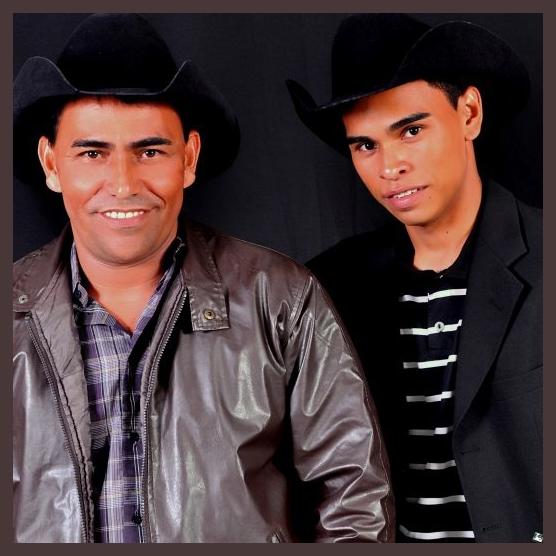 Zé Augusto e Flávio
Zé Augusto e Flávio
Zé Augusto e Flávio: The Sound of Brazilian Bossa
In the vibrant tapestry of Brazilian music, the duo Zé Augusto e Flávio stands out as a beacon of bossa nova's enduring legacy. Their collaboration, spanning decades, has left an indelible mark on the genre, captivating audiences with their soulful melodies and poignant lyrics.
Early Beginnings
Zé Augusto, born José Augusto Lages de Mello in 1945, embarked on his musical journey as a teenager. His raw talent and passion for bossa nova led him to perform at local clubs in Rio de Janeiro. Flávio Henrique dos Santos, a guitarist hailing from Niterói, crossed paths with Zé Augusto in the mid-1960s. Their shared love for music ignited a creative spark that would ignite the flame of Zé Augusto e Flávio.
Challenges and Controversies
The duo's path to recognition was not without its trials. In a music scene dominated by established artists, Zé Augusto e Flávio faced skepticism and resistance. Their unconventional approach, which fused traditional bossa nova with elements of jazz and folk, challenged the prevailing norms of the time.
Breakthrough and Discography
Despite the initial hurdles, the duo persevered, honing their craft and performing tirelessly. Their breakthrough came in 1969 with the release of their debut album, "Zé Augusto e Flávio." The album's title track, "O Brasil Tá Cheio de Mulher" (Brazil is Full of Women), became an instant sensation, captivating listeners with its catchy melody and evocative lyrics.
Over the following years, Zé Augusto e Flávio released a string of critically acclaimed albums, including "Não É Samba" (1970), "Conversando" (1972), and "Zé Augusto e Flávio Ao Vivo" (1973). Their music showcased their exceptional songwriting abilities and their mastery of bossa nova's intricate rhythms and harmonies.
Members
* Zé Augusto: Vocalist, guitarist, composer
* Flávio Henrique dos Santos: Guitarist, composer
Legacy
Zé Augusto e Flávio's contributions to Brazilian music are immeasurable. Their unique blend of bossa nova, jazz, and folk has influenced generations of musicians and continues to resonate with audiences today. Their classic songs, such as "O Brasil Tá Cheio de Mulher" and "Não Posso Te Amar Assim," remain staples of the Brazilian music repertoire.
As elder statesmen of bossa nova, Zé Augusto and Flávio continue to inspire and mentor young artists. Their music, filled with passion, artistry, and a deep love for Brazil, serves as a timeless testament to the enduring power of this iconic genre.
In the vibrant tapestry of Brazilian music, the duo Zé Augusto e Flávio stands out as a beacon of bossa nova's enduring legacy. Their collaboration, spanning decades, has left an indelible mark on the genre, captivating audiences with their soulful melodies and poignant lyrics.
Early Beginnings
Zé Augusto, born José Augusto Lages de Mello in 1945, embarked on his musical journey as a teenager. His raw talent and passion for bossa nova led him to perform at local clubs in Rio de Janeiro. Flávio Henrique dos Santos, a guitarist hailing from Niterói, crossed paths with Zé Augusto in the mid-1960s. Their shared love for music ignited a creative spark that would ignite the flame of Zé Augusto e Flávio.
Challenges and Controversies
The duo's path to recognition was not without its trials. In a music scene dominated by established artists, Zé Augusto e Flávio faced skepticism and resistance. Their unconventional approach, which fused traditional bossa nova with elements of jazz and folk, challenged the prevailing norms of the time.
Breakthrough and Discography
Despite the initial hurdles, the duo persevered, honing their craft and performing tirelessly. Their breakthrough came in 1969 with the release of their debut album, "Zé Augusto e Flávio." The album's title track, "O Brasil Tá Cheio de Mulher" (Brazil is Full of Women), became an instant sensation, captivating listeners with its catchy melody and evocative lyrics.
Over the following years, Zé Augusto e Flávio released a string of critically acclaimed albums, including "Não É Samba" (1970), "Conversando" (1972), and "Zé Augusto e Flávio Ao Vivo" (1973). Their music showcased their exceptional songwriting abilities and their mastery of bossa nova's intricate rhythms and harmonies.
Members
* Zé Augusto: Vocalist, guitarist, composer
* Flávio Henrique dos Santos: Guitarist, composer
Legacy
Zé Augusto e Flávio's contributions to Brazilian music are immeasurable. Their unique blend of bossa nova, jazz, and folk has influenced generations of musicians and continues to resonate with audiences today. Their classic songs, such as "O Brasil Tá Cheio de Mulher" and "Não Posso Te Amar Assim," remain staples of the Brazilian music repertoire.
As elder statesmen of bossa nova, Zé Augusto and Flávio continue to inspire and mentor young artists. Their music, filled with passion, artistry, and a deep love for Brazil, serves as a timeless testament to the enduring power of this iconic genre.